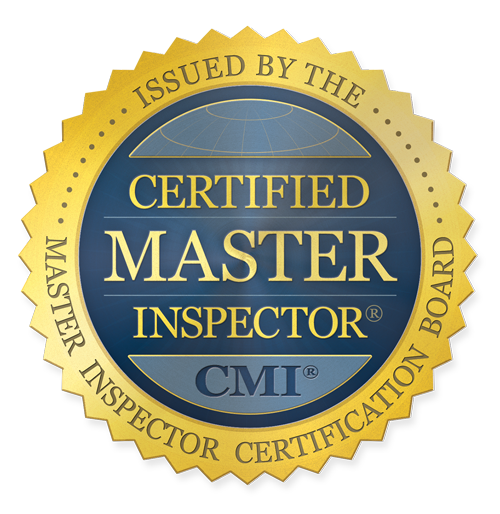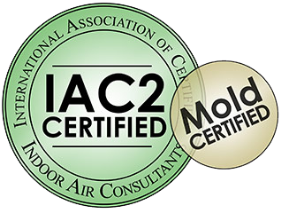A whole home inspection may be precisely what you need to move forward with a home purchase or to negotiate an offer that makes more sense for the home’s condition.
Reasons a Whole Home Inspection Makes More Sense
Typically, 4-point inspections are the “go-to” pre-sale inspection for residential homes, which provide necessary information about four critical home systems: roof, electrical, plumbing, and HVAC. However, there are times when buyers are better off going a step further and scheduling a whole home inspection.
These inspections go beyond the home systems listed above and assess additional home systems and structural conditions that may cause buyers to think twice about the purchase or put them in the position to negotiate a better deal.
A complete home inspection includes all of the same inspections offered by the 4-point inspection but also includes:
- Lot Grading and Drainage
If your lot shows evidence of poor grading and drainage, you are at risk for flooding and moisture control issues. Also, if the problem has continued for some time, your home may already suffer from issues with the foundation or wood/structural rot in the lower elevations of the house. - The Foundation
Along with grading and drainage, we’ll inspect the home’s foundation, looking for any signs of cracks or damage in the actual foundation. While examining your home and its crawl spaces, we may also notice other signs of foundation issues, such as uneven floors, cracked bricks or tiles, or cracked drywall. - Insulation and Ventilation
While we go up in the attic for a roof inspection, a whole-home inspection includes a more detailed assessment of the home’s insulation and ventilation. Both are critical in a climate like ours to optimize whole-home comfort, eliminate the risk of moisture control or mold issues, and reduce energy consumption and spending. - Evidence of Leaks or Water Damage
The inspection also includes a thorough inspection of each room in the house, cabinets below plumbing fixtures, etc., looking for any signs of unaddressed (or previous) leaks and water damage. Depending on what we find, we may use infrared technology to look for water damage located in interior walls and floors. - Pest Damage
There’s no point in moving into a home with a significant pest problem when it can be handled beforehand. While we will look for evidence of rodent infestations, the main concern is wood-destroying organisms (WDOs), which do $500 million in annual damages in Florida annually. - General Property Condition and Features
We’ll also document everything we notice that we’d want to know about if we were purchasing a home. That includes everything from the condition of the home’s siding, door and window trim, and how the doors/windows, cabinets, drawers, and appliances function to whether landscaping or other property structures pose any threat to your prospective home during extreme storm conditions.
By the time you’re done reading our report, you’ll clearly understand the home’s status – despite what glossy real estate photos or the seller’s “curb appeal” efforts may have hidden.
Five Scenarios Indicating You Need a Complete Home Inspection
Here are five situations where we feel it’s best to forgo the standard real estate 4-point inspection and schedule a complete version instead:
1. You’re First-Time Homebuyers (Or Not Very Handy)
If this is your first time purchasing a home, or you’re not the DIY type who plans to complete home renovations on your own, you need a complete home inspection. That’s the only way to understand precisely what you’re getting into. The exception would be a new construction purchase or a home built 10 years ago or less.
2. The Home is 30 Years Old or More
Thirty years doesn’t feel that long when you live them, but much can go wrong in a three decades old home – especially if it didn’t benefit from routine home maintenance. If the house hasn’t been updated since the 90s, we guarantee some things aren’t up to current building code standards.
3. Owners Can’t Provide Evidence of Maintenance
If the homeowners can’t prove that they maintained their home’s systems (roof, HVAC, attic, etc.), you should know how things stand. We’ll let you know which items need immediate attention and provide a recommended maintenance checklist for repairs and replacements in order of importance.
4. You’re Purchasing a Home Sight Unseen
We mentioned this above, but real estate photos and overeager agents may lead you to purchase a home that is truly more than you bargained for. If you don’t have a representative you trust that can do an in-person walk-thru, our complete home inspection is the next best thing.
5. You’ve Waived the Home Inspection
We never recommend waiving a home inspection because there can be issues that go way beyond what you ever thought you’d have to repair or replace. However, if you did waive the home inspection, time is of the essence, so you can take care of issues before they cause more significant problems.
Schedule Your Home Inspection With Super Inspection Pros
Want to determine whether a complete home inspection makes sense before completing the purchase of your home? Contact Super Inspection Pros. We are known for our honest, trustworthy approach and our 24-hour turnaround guarantees. Once we’ve learned a bit more about your situation, we’ll let you know if a complete home inspection is the right option for you.

